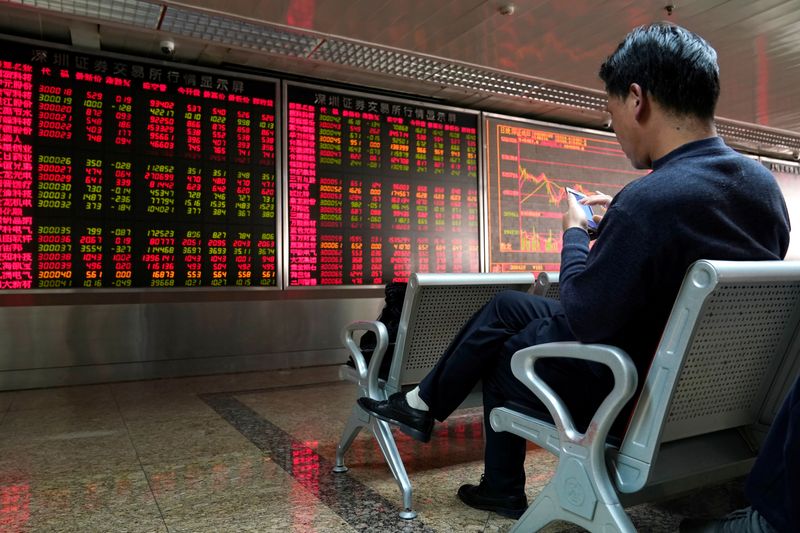This post was originally published on this site
https://i-invdn-com.akamaized.net/trkd-images/LYNXMPEG040SC_L.jpg
By Wayne Cole
SYDNEY (Reuters) – Asian share markets looked to be heading into turbulence on Monday as a flare-up of tensions in the Middle East sent gold to its highest in almost seven years while oil flirted with four-month peaks.
The United States detected a heightened state of alert by Iran’s missile forces, as President Donald Trump warned the U.S. would strike back, “perhaps in a disproportionate manner,” if Iran attacked any American person or target.
Iraq’s parliament on Sunday recommended all foreign troops be ordered out of the country after the U.S. killing of a top Iranian military commander and an Iraqi militia leader.
surged 1.6% to $1,575.37 per ounce in jittery trade and reached its highest since April 2013.
Oil prices added to their gains on fears any conflict in the region could disrupt global supplies. [O/R]
Brent crude () futures rose $1.05 to $69.65 a barrel, while U.S. crude () climbed 94 cents to $63.99.
“The risk of further escalation has clearly gone up – given the direct attack on Iran, Iran’s threat of retaliation and Trump’s desire to look tough – posing the threat of higher oil prices,” said Shane Oliver, chief economist at AMP Capital.
“Historically though oil prices need to double to pose a severe threat to global growth and we are long way from that.”
MSCI’s broadest index of Asia-Pacific shares outside Japan () was off 0.16% though most major indices were yet to open. Futures () for Japan’s Nikkei () pointed to an opening fall of around 500 points.
E-Mini futures for the S&P 500 () fell 0.4% in very choppy trade.
Sovereign bonds benefited from the safety bid with yields on 10-year Treasuries () down at 1.795% having fallen 10 basis points on Friday. Treasury futures () gained 7 ticks.
In currency markets, the Japanese yen remained the favored safe harbor courtesy of Japan’s massive holdings of foreign assets. Investors assume Japanese funds would repatriate their money during a true global crisis, pushing the yen higher.
Early Monday, the dollar had edged down to a three-month trough of 107.81 yen , and risked a pullback all the way to 107.00. The euro likewise eased to 120.45 yen () having hit a three-week low.
The dollar was steadier against the other majors, with the euro being little changed at $1.1166 (). Against a basket of currencies, the dollar was holding at 96.852 ().
Fusion Media or anyone involved with Fusion Media will not accept any liability for loss or damage as a result of reliance on the information including data, quotes, charts and buy/sell signals contained within this website. Please be fully informed regarding the risks and costs associated with trading the financial markets, it is one of the riskiest investment forms possible.

